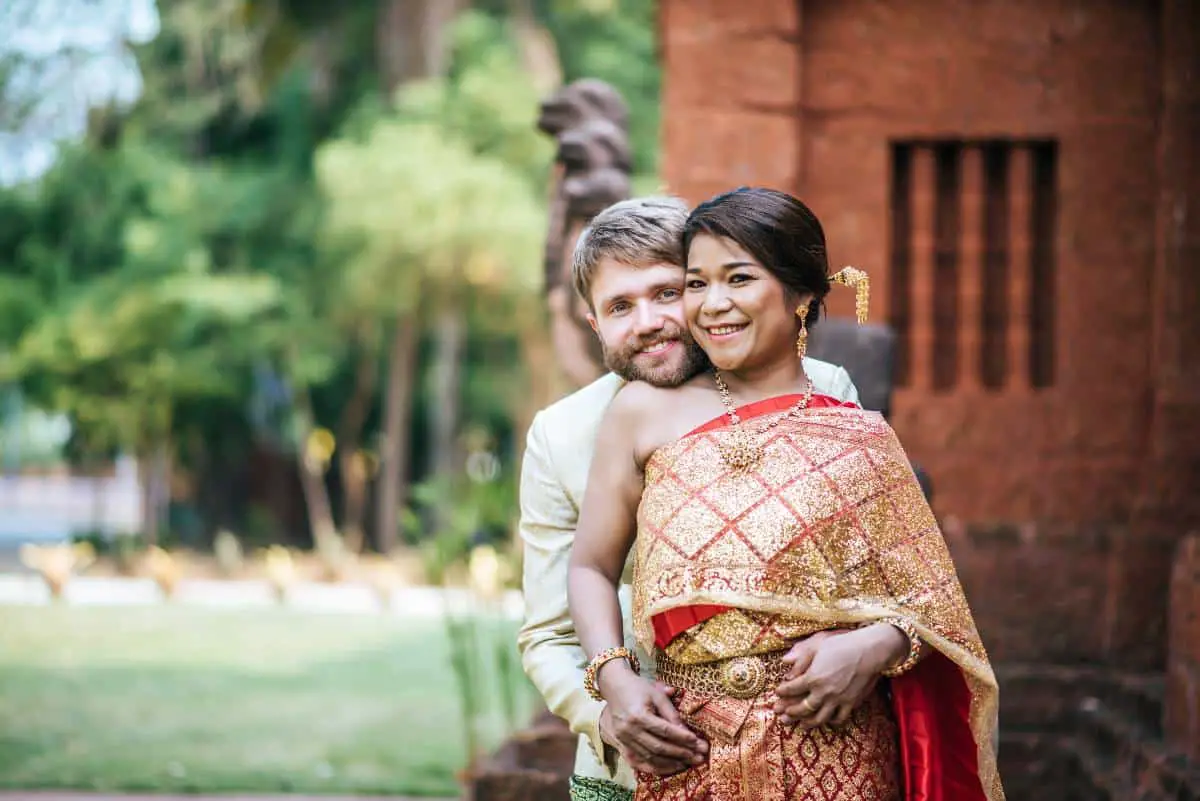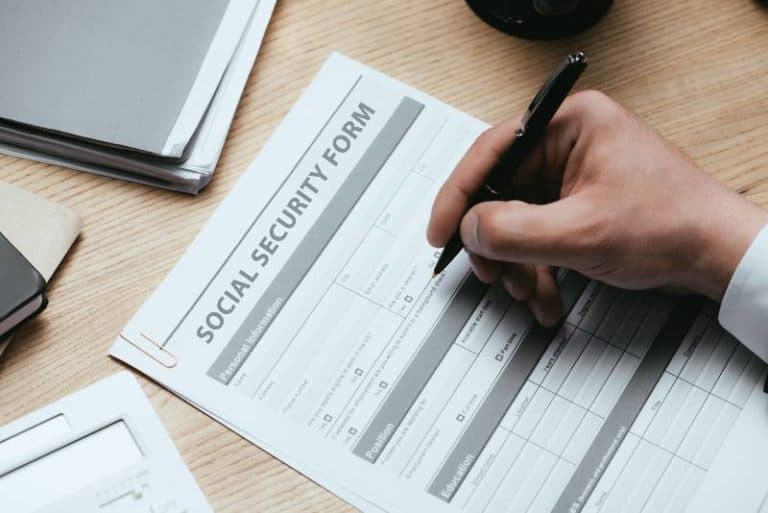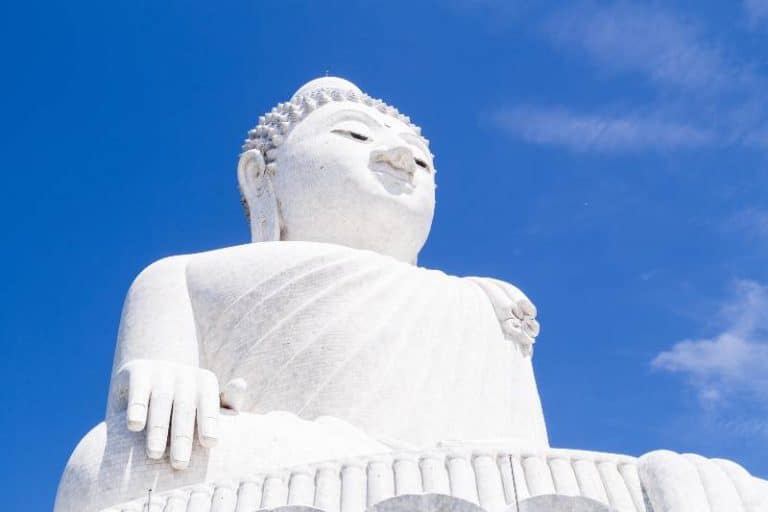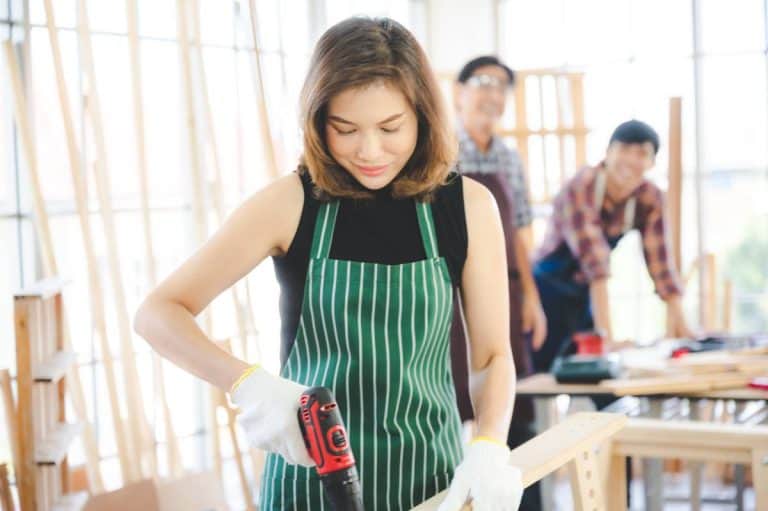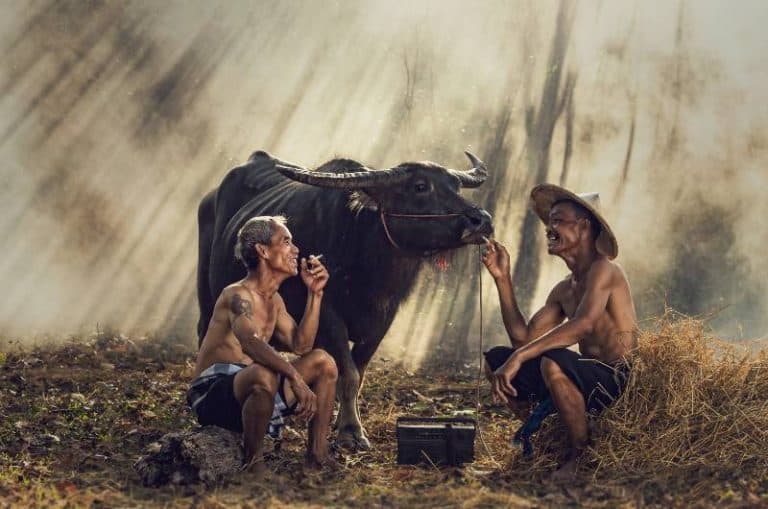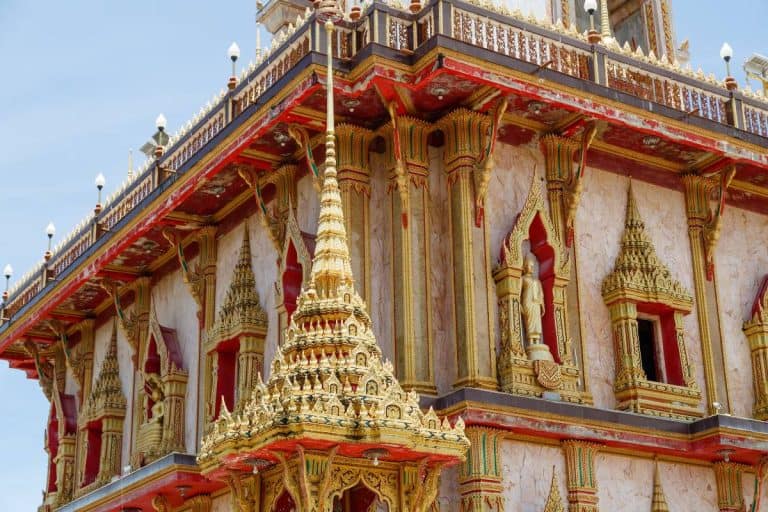Traditional Thai Wedding Customs That Expats Should Know
Imagine a vibrant tapestry of gold, silk, and fragrant jasmine, woven with centuries-old traditions and spiritual significance. That’s a Thai wedding for you! As an expat who’s called Thailand home for years, I’ve witnessed countless ceremonies that left me awestruck. Whether you’re tying the knot with a Thai partner or just curious about local customs, buckle up – we’re about to dive into the enchanting world of traditional Thai wedding customs!
Key Takeaways
- Traditional Thai weddings are rich in symbolism and cultural significance
- Understanding Thai wedding customs can help ex-pats better integrate into Thai society
- Modern Thai weddings often blend traditional elements with contemporary practices
Pre-Wedding Rituals
Before the big day arrives, there’s a whole series of important steps that set the stage for a traditional Thai wedding. Let’s break it down:
Auspicious Date Selection
In Thailand, timing is everything! The couple doesn’t just pick a date that fits their schedule – they consult with monks or astrologers to select an auspicious date for their union. It’s all about starting the marriage off on the right foot (or should I say, the right star alignment?).
Making Merit with Monks
Next up is a ritual that’s close to the heart of Thai Buddhist culture – making merit. The couple visits a temple to offer food to monks and receive blessings. It’s like cosmic insurance for a happy marriage!
Engagement Ceremony (Thong Mun)
The Thong Mun, or engagement ceremony, is where things start to get official. The groom presents the bride’s family with gold jewelry, symbolizing his commitment. It’s not just about the bling, though – it’s a beautiful gesture of respect and intention.
Dowry Negotiation (Sin Sod)
Ah, the famous Sin Sod! This isn’t your medieval-style dowry – think of it more as a gesture of gratitude to the bride’s family for raising such a wonderful daughter. The amount is usually discussed and agreed upon beforehand, so don’t worry about any awkward bartering at the ceremony!
The Wedding Day: Morning Ceremonies
Rise and shine, it’s wedding day! The morning of a Thai wedding is packed with meaningful rituals:
Buddhist Blessing Ceremony
The day kicks off with a Buddhist ceremony, usually at the bride’s home or a temple. It’s a serene and spiritual start to the proceedings.
Monk Participation and Significance
Monks play a crucial role in the ceremony, chanting prayers and blessing the couple. Usually, an odd number of monks are invited – nine is considered especially lucky.
Offering Food to Monks
The couple offers food to the monks – a merit-making act that’s believed to bring good fortune to their marriage.
Holy Water Preparation
Holy water is prepared during this time, often by the most senior monk. This blessed water will play a key role later in the day.
The Khan Maak Procession
Now, here’s where the fun really begins! The Khan Maak procession is like a festive parade led by the groom:
- The groom and his family form a procession to the bride’s house
- Traditional music and dancing accompany the group
- Symbolic items are carried, each with a special meaning
- ‘Door games’ add a playful element as the groom tries to reach his bride
This lively procession is a feast for the senses and a joy to witness. It’s Thai culture at its most vibrant and celebratory!
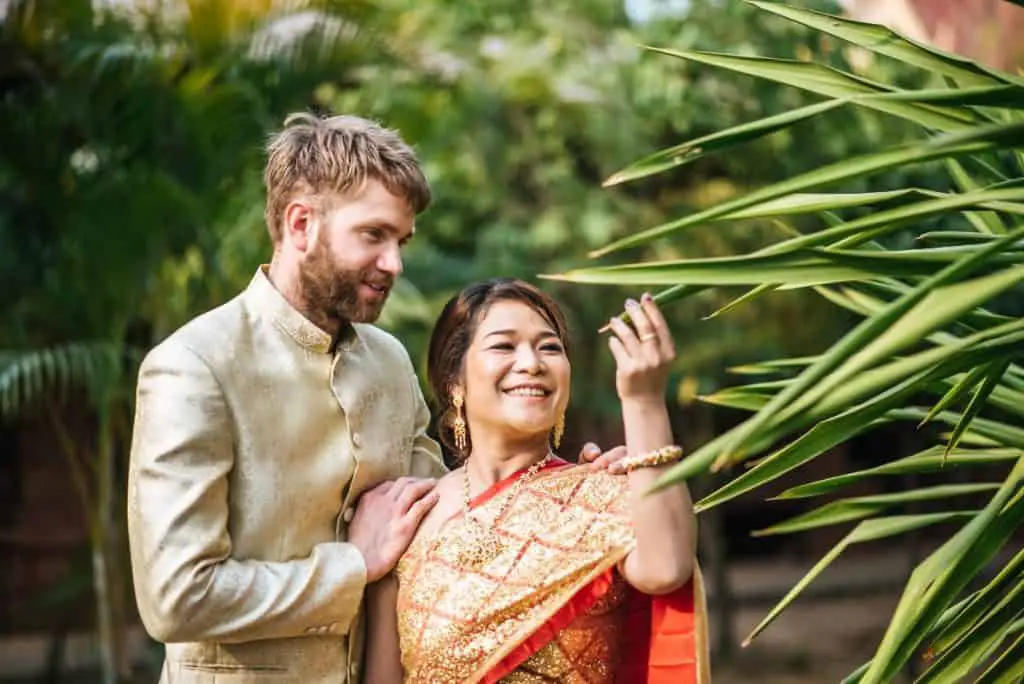
Core Wedding Rituals
The heart of the Thai wedding ceremony involves several key rituals:
White Thread Ceremony (Sai Monkhon)
In the Sai Monkhon ritual, a white thread is used to connect the bride and groom, symbolizing their union. It’s a beautiful, tangible representation of two lives becoming one.
Water Pouring Ceremony (Rod Nam Sang)
The Rod Nam Sang is perhaps the most iconic part of a Thai wedding. Guests pour blessed water over the couple’s hands, offering wishes for their future together. It’s a deeply moving moment that often brings tears to everyone’s eyes.
Conch Shell Symbolism
A conch shell is often used to pour the water, adding another layer of symbolism. In Thai culture, the conch represents auspiciousness and purity.
Parental Blessings
Parents and elders offer their blessings to the newlyweds, often tying sacred threads around their wrists. It’s a touching moment that highlights the importance of family in Thai culture.
Cultural Symbolism in Thai Wedding Attire
Thai wedding attire is a sight to behold! Here’s what you need to know:
- Traditional bride and groom outfits are elaborate and stunning
- Colors and patterns carry deep cultural significance
- Regional variations exist in wedding attire across Thailand
- Modern interpretations often blend traditional elements with contemporary styles
Whether it’s the intricate embroidery of a bride’s dress or the regal appearance of a groom in traditional garb, Thai wedding attire is a visual feast that tells its own story of cultural heritage.
The Role of Family and Community
In Thailand, a wedding is far more than just a union between two individuals:
Extended Family Involvement
Weddings are a family affair, with extended relatives playing important roles throughout the celebrations.
Community Participation and Support
The local community often gets involved, from helping with preparations to joining in the festivities.
Strengthening Social Bonds
A Thai wedding is an opportunity to strengthen social ties and reinforce community relationships.
Generational Knowledge Transfer
Elders pass down traditional knowledge and customs to younger generations through wedding rituals.
This communal aspect of Thai weddings is something that often surprises and delights expats. It’s a beautiful example of the collective spirit that underpins Thai society.
Auspicious Items and Their Meanings
Thai weddings are full of symbolic items, each carrying special significance:
- Symbolic objects used in ceremonies (e.g., brass trays, traditional pillows)
- Lucky numbers play a role (odd numbers are preferred, especially nine)
- Floral arrangements carry specific meanings (jasmine for love and fortune)
- Food items with auspicious connotations are often included
Understanding these symbols adds an extra layer of appreciation to the ceremonies. It’s like decoding a beautiful cultural puzzle!
Regional Variations
Thailand is a diverse country, and wedding customs can vary significantly by region:
Northern Thai Wedding Customs
Northern weddings often involve unique rituals like the ‘Lanna-style’ wedding procession.
Northeastern (Isan) Traditions
Isan weddings may include distinctive elements like the ‘Bai Sri’ ceremony.
Southern Buddhist Practices
Southern weddings might incorporate local customs, such as special blessing rituals.
Muslim Wedding (Nikah) in Southern Thailand
In the predominantly Muslim areas of southern Thailand, Islamic wedding traditions are observed.
These regional differences showcase the rich cultural tapestry of Thailand and remind us that there’s no one-size-fits-all when it comes to Thai weddings!
Modern Adaptations and Western Influences
Like everywhere else, Thai weddings are evolving:
- Traditional elements are often blended with contemporary practices
- Some couples incorporate Western customs, like exchanging rings
- Destination weddings in Thailand are becoming popular
- International couples may need to navigate legal considerations
This fusion of old and new creates unique, personalized celebrations that honor tradition while embracing modernity.
Reception and Post-Wedding Customs
After the solemnity of the traditional ceremonies, Thai weddings transition into joyous celebrations that can last well into the night. These festivities blend age-old customs with modern practices, creating a unique experience for all involved.
Evening Reception Practices
The evening reception in a Thai wedding has evolved to incorporate many Western elements while retaining its distinct Thai flavor:
- Venue Choices: Receptions can be held in various settings, from traditional Thai houses to modern hotels or outdoor gardens.
- Formal Dinner: A multi-course meal is typically served, often featuring a mix of Thai and international cuisines.
- Speeches and Toasts: Family members and close friends offer heartfelt speeches, often accompanied by slideshows of the couple’s journey.
- Entertainment: Live bands or DJs provide music for dancing. Traditional Thai performances, such as classical dance or music, may also be incorporated.
- Photo Booths: A modern addition, these allow guests to take fun pictures as mementos.
- Guest Book Alternatives: Creative options like wishing trees or video messages are becoming popular.
Food and Beverage Traditions
Thai wedding feasts are legendary, offering guests a culinary journey through Thailand’s rich gastronomy:
- Symbolic Dishes: Certain foods are chosen for their auspicious meanings. For example, noodles represent long life and continuity.
- Regional Specialties: Depending on the couple’s background, regional dishes may be featured prominently.
- Fruit Carving: Elaborately carved fruits often serve as both decoration and delicious treats.
- Dessert Buffets: An array of traditional Thai sweets and modern pastries is typically offered.
- Beverage Choices: While alcohol is served at many receptions, traditional non-alcoholic drinks like nam ma-prow (coconut water) are also popular.
Bedding Ceremony
The traditional ‘bedding ceremony’, while less common now, still holds significance in some families:
- Bed Preparation: Elders prepare the marital bed with auspicious items like rose petals, coins, and fruit to symbolize prosperity and fertility.
- Couple’s Entry: The newlyweds enter the bedroom together, often led by a respected elder.
- Blessings and Advice: Family members offer final blessings and sometimes humorous advice for married life.
- Privacy Respect: Modern interpretations often skip the more intimate aspects of this tradition out of respect for the couple’s privacy.
Honeymoon Customs
While not strictly traditional, honeymoons have become an important part of the wedding experience for many Thai couples:
- Domestic Travel: Many couples choose to explore Thailand’s diverse regions and islands for their honeymoon.
- International Destinations: Increasingly, Thai couples are opting for overseas honeymoons, with destinations like Japan, Europe, and the Maldives being popular choices.
- Honeymoon Registry: A modern twist where guests can contribute to the couple’s honeymoon experiences instead of giving traditional gifts.
- Post-Honeymoon Temple Visit: Some couples maintain the tradition of visiting a temple after their honeymoon to make merit and receive blessings for their new life together.
These post-ceremony celebrations and customs showcase the beautiful blend of tradition and modernity in contemporary Thai weddings. They reflect the changing face of Thai society while honoring the rich cultural heritage that makes Thai weddings so special. For expats attending or participating in these celebrations, it’s an opportunity to immerse themselves in the warmth and joy of Thai hospitality and traditions.
Post-Wedding Traditions and Newlywed Life
The journey doesn’t end with the wedding – there are still some important customs for newlyweds:
- First visit to family temples as a married couple
- Setting up the marital home according to traditional beliefs
- Customs related to fertility and childbearing
- Ongoing familial responsibilities of the newlyweds
These post-wedding traditions help ease the couple into their new life together, with the support and guidance of their families and community.
FAQs
What is the significance of the Khan Maak procession in Thai weddings?
The Khan Maak procession is a joyful and symbolic journey of the groom and his family to the bride’s home, representing the groom’s commitment and the joining of two families.
How does the Buddhist religion influence Thai wedding ceremonies?
Buddhism plays a central role in Thai weddings, from the involvement of monks in blessing ceremonies to the practice of making merit before the wedding.
What is the meaning behind the water pouring ceremony (Rod Nam Sang)?
The Rod Nam Sang ceremony symbolizes purification and the flow of blessings from elders and guests to the newlywed couple.
How have Thai wedding traditions evolved to incorporate Western influences?
Many modern Thai weddings blend traditional elements with Western practices, such as wearing a white wedding gown or exchanging rings.
What legal considerations should foreign couples be aware of when planning a wedding in Thailand?
Foreign couples should be aware of documentation requirements, the need for translation of certain documents, and the process of registering their marriage legally in Thailand.
Conclusion
Traditional Thai weddings are a beautiful blend of spirituality, community, and celebration. They offer a unique window into Thai culture and values, from the importance of family and respect for elders to the deep spiritual foundations of Thai society.
For expats in Thailand, understanding these customs can greatly enrich your experience of living in the Kingdom. Whether you’re attending a Thai wedding as a guest, marrying into a Thai family, or simply curious about local traditions, embracing these customs can deepen your connection to Thai culture and people.
Remember, while traditions are important, modern Thai weddings often blend the old with the new. The most beautiful weddings are those that reflect the couple’s personal journey while honoring their cultural heritage.
So, the next time you’re invited to a Thai wedding, dive in with an open heart and mind. You’re not just attending a ceremony – you’re participating in a rich cultural experience that has been centuries in the making. And who knows? You might find yourself shedding a tear during the water-pouring ceremony or dancing your heart out at the evening reception!
Ready to dive deeper into Thai culture or need help planning your own Thai-style wedding? If you have any questions, don’t hesitate to reach out. We’re here to help you navigate the beautiful complexities of life in Thailand, whether you’re retiring, working, or starting a new chapter of your life in this amazing country. Let’s make your Asian adventure unforgettable!
